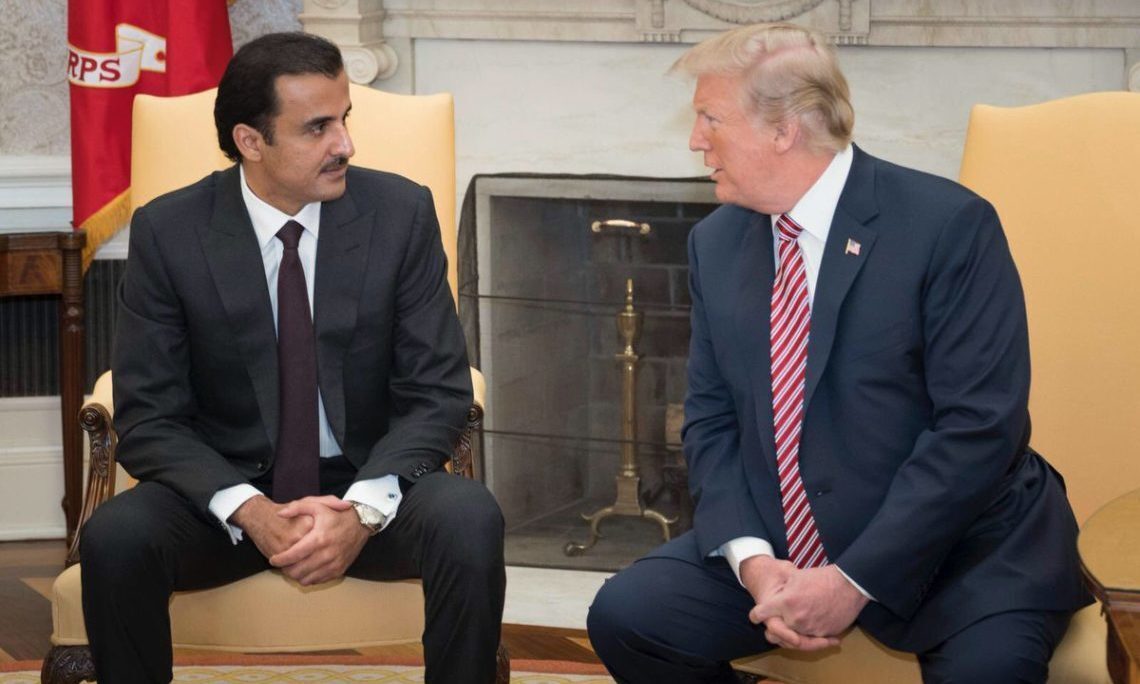Relations between Qatar and its adversaries remain at a stalemate even with the death of the ‘Dean of Arab Diplomacy’, Sheikh Sabah Al Ahmad Al Jaber Al Sabah, who had been acting over the past three years as a mediator to resolve the Gulf crisis. With this latest development, the death of the Emir of Kuwait may highlight the importance of the American role in ending the ongoing conflict.
The United States has already been pushing for reconciliation between antagonist GCC countries. Over the past few weeks, efforts to end the Gulf crisis gained traction once more with US Secretary of State Mike Pompeo suggesting “it’s past time to find a solution to the Gulf rift” in order “to close the door to increased Iranian meddling”.
The US official also acknowledged the continuing crisis “benefited their [the blockading states] adversaries”. Donald Trump’s administration is “eager to see this dispute resolved and to open Qatar’s air and land borders currently blocked by other Gulf states”, he added.
The Gulf crisis erupted on June 5, 2017, when Saudi Arabia, United Arab Emirates, Bahrain, and Egypt, imposed an air, land, and sea blockade against Qatar. The US’ latest efforts to end the crisis – followed by several Kuwaiti attempts – has managed to contain the conflict from exacerbating, though with far less success.
At the beginning of the blockade, Trump supported the quartet countries. Today, however, talks on ending the crisis are serious – which poses the questions: Are world leaders finally working to resolve the GCC crisis? And why are these discussions taking place now?
Firstly, the US administration is looking to maximise its list of global achievements, as highlighted by the recent normalisation treaties signed between Israel and the UAE and Bahrain, ahead of the November 3 election. Trump is particularly keen to show success in his foreign policy approach towards the Middle East Arab region.
Read also: What would a Biden presidency look like for Qatar, GCC region?
Meanwhile, Pompeo was explicit at contending that resolving the Gulf crisis is important to confronting Tehran. A weakened Iran is a priority that would secure the Trump administration’s ambitions regionally and cornering Iran would be a welcome accomplishment in light of the maximum pressure policy imposed since the nuclear deal withdrawal in 2018.
Furthermore, Iran has attempted to capitalise on international issues by providing Qatar with an alternate airspace route. If Trump was to push blockading countries to open their airspaces, Iran would lose out.
Secondly, the death of the Emir of Kuwait places more emphasis on the American role as the Gulf state occupies itself with arranging its internal affairs. The stance of the new Kuwaiti Emir Sheikh Nawaf Al-Sabah toward mediation in the region also remains unknown and only time will tell whether he would take on a similar role to his predecessor.
“The US is seemingly searching for an exit strategy that swerves away from this list entirely”
Thirdly, concerns over Gulf security may force the US towards settling the dispute once and for all, as an extension to the crisis may destroy Washington’s decades-old region-wide security apparatus. The Gulf region is already witnessing ongoing crises, such as the outbreak of COVID-19 pandemic, the energy crisis and the collapse of oil prices, as well as the global economic recession. Once accumulated, these factors would likely destroy old security arrangements and subsequently pose a threat to US interests in the region.
US efforts to resolve the crisis would quite clearly decrease the cost of any future arrangements and secure US interests in the Gulf. However, despite the steps towards a resolution to the conflict, the blockading countries – some of which are currently seeking investments with Israel – are less enthusiastic to end the crisis.
Read also: Would an Israeli embassy ever open in Doha?
In 2017, the quartet issued a humiliating list of thirteen demands to force Qatar to surrender after imposing the blockade. Among the conditions set was the shuttering the flagship Al Jazeera network, closing a Turkish army base, and scaling down ties with Iran.
Doha naturally rejected the conditions and has since 2017 upheld its right to sovereignty in the face of aggression. Knowing this, the US is seemingly searching for an exit strategy that swerves away from this list entirely.
Washington’s current calls reflect nothing more but the need for a serious decisive mediation to head off the crisis, and with the death of regional peacemaker Sheikh Sabah, these calls are likely to increase.
Any ongoing or future attempts should first consider respect to mutual relations on the international scale. The crisis is likely to continue if the blockading countries do not agree on these principles, which in the end, are mere basic rules of international relations, law and sovereignty.
Mahjoob Zweiri is the Director of Gulf Studies Center at Qatar University.
The views and opinions expressed in this article are those of the authors and do not necessarily reflect the official policy or position of Doha News, its editorial board or staff.
Follow Doha News on Twitter, Instagram, Facebook and Youtube







